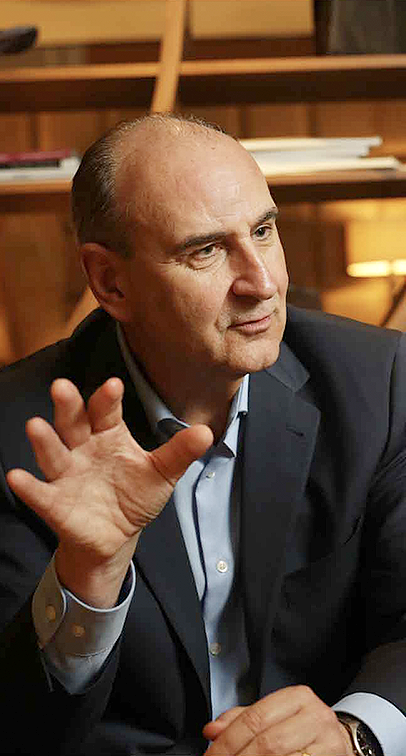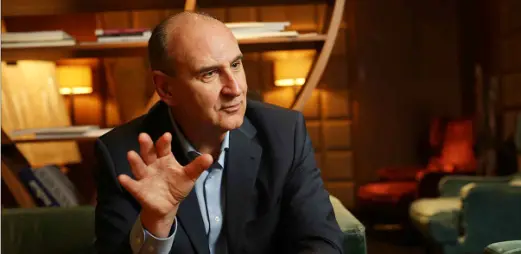THE WORLD’S #1 EXECUTIVE COACHING AND BUSINESS COACHING BLOG SINCE 2017.
The Storyteller’s Guide to Effective Business Speaking
January 24, 2018 | Category: Blog, Business Challenges
You can enter information into a spreadsheet, document, or database, and it’s there until someone or something erases it. Human brains don’t work that way, however.
Machines don’t need an emotional attachment to “remember” data, but humans do.
Substantial evidence has been amassed by neural, psychological, and educational researchers showing that people remember information better if emotion is attached to it. They remember it more clearly, more accurately, and for longer periods of time than they do dry facts devoid of context.
The best business speakers know this and tailor their presentations to the needs of the human brain. We humans need to connect with one another, and storytelling does this while recitation of dry facts often causes information to evaporate into thin air. Here’s what great business speakers know about effective storytelling, which is, after all, the best way to transmit information and have it stick.
Make Sure Your Story Has a Beginning, Middle, and End
When stories ramble aimlessly, chances are that the only thing listeners remember afterward is their annoyance at the storyteller. Whether you’re presenting scientific research, business numbers, or a new theory on a historic incident, your “story” must have a beginning, a middle, and an end. If you’re not sure how to do this, try using this helpful outline:
- Introduction – which sets the scene effectively
- The challenge – and if it shows vulnerability, so much the better for emotional connection
- The raising of the stakes – which is where many of your juiciest details should be
- The climax – where the dilemma is solved or change takes place
- The resolution – where you sum up and reflect on what you learned
Know Your Audience
If your audience is composed of the general public, then you must tailor your narrative to them. Likewise, if your audience is highly specialized engineers or scientists, you should make your presentation relevant and more specific. Exceptional business speakers know that who your audience is, their backgrounds, the venue, and the occasion should all influence your presentation.
Be Honest and Authentic
People are remarkably attuned to inauthenticity. Once they sense that your story is self-serving or otherwise dishonest, they tune out. You may be the one telling the story, but the audience is ultimately the “hero.” They should come away from the narrative with something they didn’t have before. If all you’re doing is saying how great you are, but couched in a narrative format, you’ll lose your audience.
The surest way to lose your audience is to come across as self-serving or phony.
The Ending Should Reveal Something (Or at Least Summarize)
As your story concludes, you should ask yourself and your audience, in so many words, “What have we learned?” Endings that reveal something can be immensely powerful (“And it turned out, I knew it all along, but couldn’t admit it.”) Even if your narrative doesn’t have a powerful “reveal,” it should conclude with a brief summary of the journey you and your audience have just been on together.
Know What to Edit Out
The fact of being human causes us to collect innumerable anecdotes, surprises, and unique situations, but that doesn’t mean you need to include all of them in your presentation or speech. There may well be a funny aside or remarkable incident that simply doesn’t serve your narrative’s purpose, and you should edit it out. This can be painful, but be patient. The time may come (possibly as soon as the Question and Answer session afterward), when that information may be highly appropriate.
Business speakers who succeed know how to tell great stories. You don’t have to be J.K. Rowling or Dante Alighieri to tell a great story, your story. You can have confidence that you bring something valuable to the table, and when you’re able to lay out a clear narrative and make an emotional connection with your audience, you can also be confident that the story you tell matters.
In my decades as an author, business speaker, and executive coach, I have been privileged to learn countless stories from the people I work with, and I have had the opportunity to practice storytelling in numerous settings and scenarios. Don’t think of storytelling as a “soft” business skill. It can, in fact, be the one thing that separates the outstanding professionals from the ones who are merely adequate. I am passionate about the value of connecting with and teaching others, so they can exceed even their greatest expectations.





